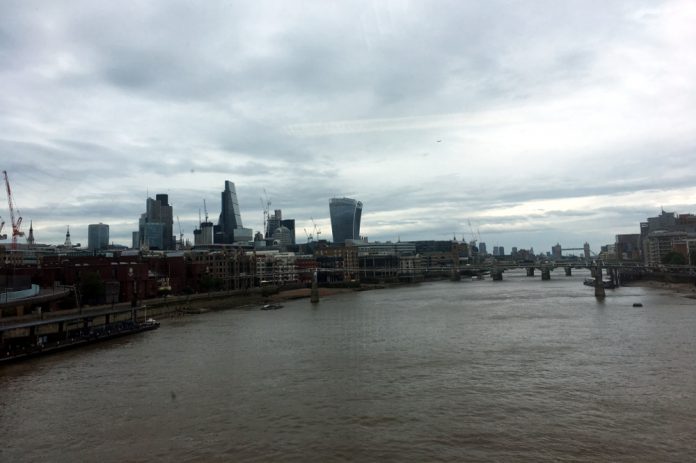Fatal fires are rare in residential tower blocks in the capital of the UK. A shocked nation mourned after “seventy-two people died after a huge fire engulfed Grenfell Tower, a west London residential tower block, in the early hours of Wednesday, 14 June 2017.” The horrific fire was started accidentally by an old “Hotpoint refrigerator” in a high rise brutalist style building built in 1974 in North Kensington. (1)
Sadly this was however not an isolated incident: “Fire raged through Lakanal House in July 2009, a 14 storey block of flats built in 1958 in Camberwell, (South London) killing 6 people.” (2)
Experts knew post war high rise buildings can pose a fatal risk and recent assessments following the shocking flammable cladding revaluations show up to 300 blocks across the country are not yet safe to live in. It is shocking that in an advanced first world country we have not knocked them down and rebuilt them to the highest modern safety standards.
Architect and fire safety expert Sam Webb said that in the 1990’s “We discovered a widespread breach of safety, but we were simply told nothing could be done because it would make too many people homeless.” (2)
It is possible that either deliberately or inadvertently, people in positions of power and leadership in British government have prioritised the need to offer housing to residents in their chosen location, for example in central London, over the responsibility to provide really safe 21st century housing for families even if this means relocation.
Civil servants and administrators who work for the government at local council level are doing their best to help house the public that they have on their long council house waiting lists. Housing departments have a set budget from central government and officers can only offer suitable properties in their locality that they have available and ready to allocate.
It must be better in the long term that councils work together across counties and insist where possible people with immediate housing needs accept the social housing offered to them further away from expensive inner London boroughs.
In the long term big budget savings can be made compared with inner city housing and therefore more citizens can be benefit. It is important to provide support with moving costs and help men and women to find work and help from social services settling into a new district where new quality housing is available. Moving to the city suburbs and beyond can be a positive move, like it did for many of our parents and grandparents after the wars. Most Londoners and other metropolitan folk accept they simply cannot afford property in zones 1 or 2 and they commute into the city daily for their work, education and to meet friends and family.
Some Housing Officers in expensive London areas are already offering accommodation to people in other cities where property is cheaper. The Channel 4 documentary ‘How to Get a Council House’ stated in 2016 that renting “a four-bedroom house in the Midlands costs £750 a month, compared with around £2,000 in Hounslow.” (3)
Compulsory rehousing up to several hundred people currently living in a community in a high rise block, in order in order to rebuild it to 21st century building regulations, is a complex multi million pound project involving many stakeholders, that many councils would not choose to undertake or afford voluntarily. The problem is that the architectural lifespan of many post war high rise buildings means that many are now in desperate need of a total renovation approximately 70 years later, to conform to current fire safety legislation and building standards.
All sorts of people from many walks of life become unexpectedly homeless due to personal circumstances and often through no fault of their own. It is understandable that individuals would rather live in a home with problems in a dated tower block, than in bed and breakfast accommodation or face living on the street, especially if they have children.
However as a first world nation we spend in the UK more than 13 billion each year on foreign aid. (4) Therefore we should be able to afford the new properties needed and safe high rise buildings where nobody is going to bed fearful that they and their families may not be able to escape safely, should there be blaze started while they are sleeping.
Housing Officers helping people find a roof over their heads are often only able to offer them private temporary accommodation in the council area in which they are applying and “just 8% of those on the waiting list received a council home.” according to Channel 4’s ‘How to Get a Council House’ show’s makers. (3)
To solve these problems is not impossible as Scandinavian countries like Denmark’s successful housing scheme show. It will take generous dedicated central government budgets and joined up thinking. Multiple agencies and councils and housing associations and developers all working together to solve our homeless problem and our unaffordable housing crisis.
Brexit negotiations are dominating the headlines and there are big changes ahead in the UK. It is important we take a strategic approach to upgrading high rise blocks in addition to our new housebuilding programmes to ensure those on low incomes and those working on temporary contracts can afford a good quality, safe, permanent home with the peace of mind their families deserve.
(1) BBC News ‘How the tragedy unfolded at Grenfell Tower’ 18 May 2018
https://www.bbc.co.uk/news/uk-england-london-40272168
(2) Wainwright O. and Walker P. ‘Disaster waiting to happen: fire expert slams UK tower blocks’ The Guardian 14 June 2017
(3) Cumber R ‘How to Get a Council House:11 things we’ve learnt from the Channel 4 show’ getwestlondon 27 May 2016
https://www.getwestlondon.co.uk/news/west-london-news/how-council-house-11-things-11394857
(4) Morris C. ‘Reality Check: How much does the UK spend on overseas aid?’ BBC News 20 April 2017
https://www.bbc.co.uk/news/uk-politics-39658907

